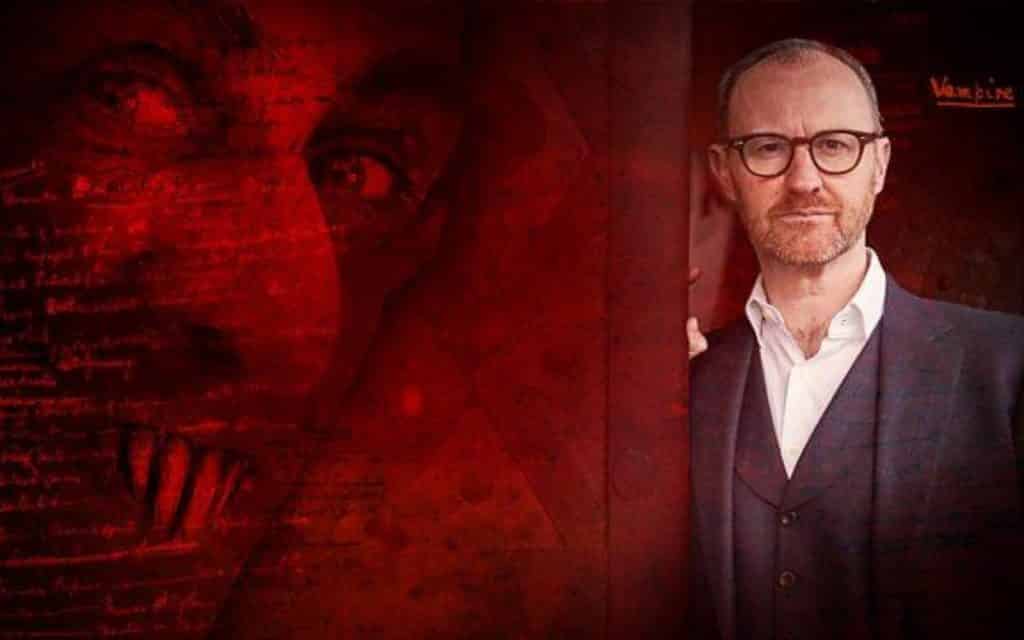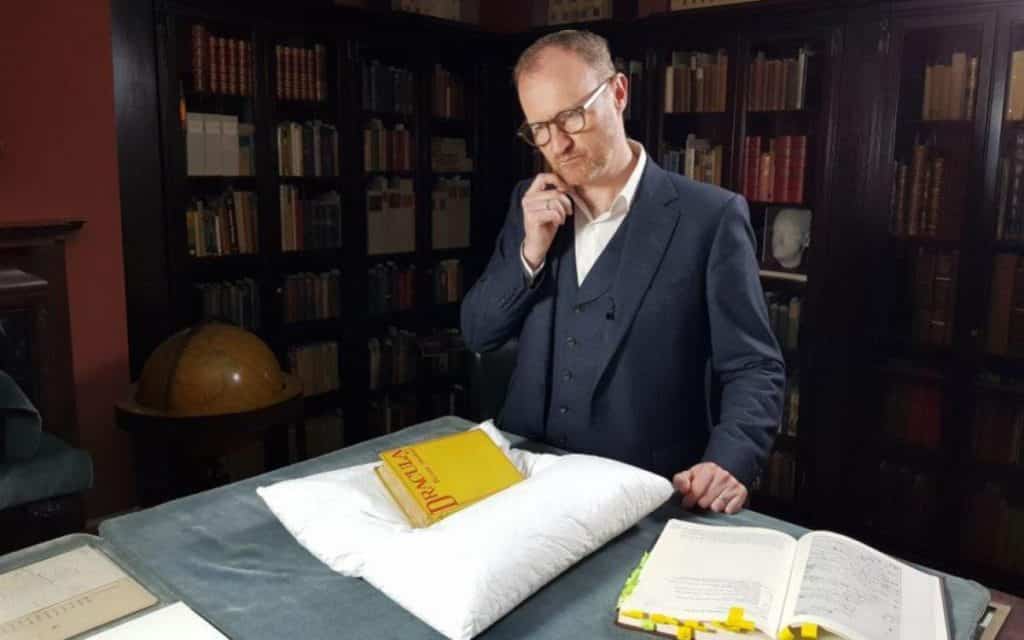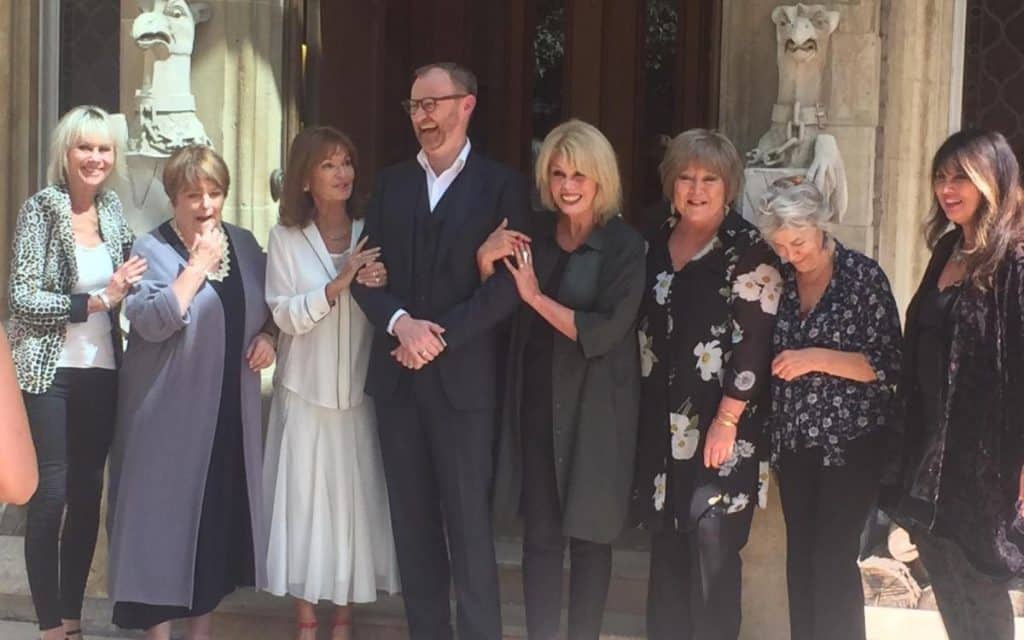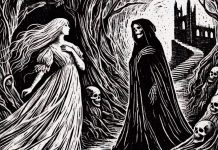TERRY SHERWOOD reviews In Search of Dracula, Mark Gattiss’ documentary exploring the history of the king of vampires…

Rising from the film vaults of the huge amount of Dracula and vampire documentaries out there: we have In Search of Dracula (2020).
Rather fitting that the title is the same as the 1975 production based on the research of the then popular book by Raymond McNally and Radu Florescu. The BBC produced this delightful 90-minute item to air at the conclusion of the controversial three part miniseries, Dracula (2020) as produced and written by Mark Gatiss and Stephen Moffatt.
Mark Gatiss does a splendid job of giving the uninitiated of an overview of the various incarnations of the story. Mr Gatiss, like many including myself, grew up with Hammer Horror and the Universal Studio Classics being his entrance into the genre. Like him or not, Sir Christopher Lee made an impression. In fact, more so than Bela Lugosi.
The production opens with the spectacular scenery of the location set of the castle of Orava Castle in Slovakia used in the newest BBC adaption, which is the same castle used in Nosferatu (1922). Mr Gatiss takes great whimsical delight in the various parts of the present castle and juxtaposing their images from the landmark silent film.
Unique viewing of Bram Stoker’s Dracula notes
The singular treat for myself and other fans was viewing the papers of the original notes of Stoker’s book and as first edition housed in Philadelphia’s Rosenbach Museum of the Free Library. The notes I had previously seen in the neglected volume The Essential Dracula features annotated text and background essays by Raymond McNally and Radu Florescu. Stoker’s hand written notes have characters sketched out, research items, chapter and event sequences from the original idea. The program also looks up the actual research books Stoker read or borrowed. These are still available in UK. Mr Gatiss pays a visit to Whitby, where the idea of the Demeter’s voyage and landing in England was born.

You get to watch some Hammer leading ladies have tea and reminisce about Christopher Lee, on and off the screen. Herein lie interesting revelations. The theatrical productions and the Universal Classic film are given their rightful places, as the originator of certain Dracula cinema clichés emerge in a conversation between Mr Gatiss and David Skal, who is the author of many books on the subject.
The Hammer films are looked at with a slightly detrimental tone. Bride of Dracula (1960), for example, which featured David Peel as Baron Meinster instead of Christopher Lee in the title role. I personally enjoy this picture as it gives a different look to the plague of vampirism. David Peel does his best in the role with fangs and eyes all aglow. For me, this is loads better than the abysmal Gary Oldman look.

Frank Langella’s characterization gets a nod as being the romantic version of the Count. The entire film was romantic in scope.
Still, hands down the best adaption for me and Mr Gatiss is Count Dracula (1977) with Louis Jourdan in the title role. One gets to listen to Susan Penhaligon, who played Lucy Westenra, speak of Jourdan’s approach to the role and how he gave a commandingly aloof European flair to it.
The production also visits the Bray Studios near Windsor, England where the Hammer films were made and enjoy the words of Jonathan Rigby, who is one of the preeminent authors of the genre having written three essential volumes I call The Essential Gothics.
Look of BBC’s Dracula (2020)
There is a lot on offer in this special produced for the BBC’s Dracula (2020). You get to hear from Dracula himself in the person of Claes Bang as he speaks of his approach to the role and producer Steven Moffat on the tone.
In Search of Dracula (2020) is a worthy companion to this new production; many say much so than the excised chapter of the original book Dracula’s Guest. The production gives a strong over view from a fan and a person with reverence for the material and can be viewed after or before the new production. Like Van Helsing said in Dracula aka Horror of Dracula (1958) in the person of Peter Cushing, “We have only just scratched the surface.”







